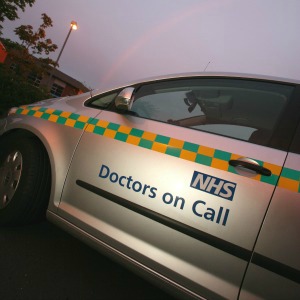Exclusive GPs in Wigan will have the option of being employed by the CCG to work across out-of-hours services and in the new A&E streaming service.
NHS Wigan Borough CCG has devised a new role – the ‘i-GP’ – that will allow GPs to work as salaried doctors in Wigan practices, out-of-hours services, walk-in centres, prison health services, extended-hours services and in the A&E streaming services.
According to the CCG, the GPs will be contracted under NHS Wigan Borough CCG to provide these services and will have their indemnity covered.
This is in part a response to NHS England’s push for every A&E to include a GP ‘streaming service’ by the end of the year, with Wigan, Wrightington and Leigh NHS Foundation Trust one of 97 hospitals chosen to receive Government funding, receiving £630,000 to set up the service.
GPs participating in the scheme, which is being advertised on the CCG’s website, will have a salary dependent ‘on the clinical environment’ they work in.
The GPs will have the opportunity to work in the Bridgewater Community Healthcare NHS Foundation Trust, Wigan, Wrightington and Leigh NHS Foundation Trust and the Wigan GP Alliance’s extended-hours service.
However, the GPs will be required to work a minimum number of sessions during core hours in a practice, but are able to work as many additional sessions as they wish in clinical environments of their choice.
They will have access to the NHS Pension Scheme and will have their indemnity provided for them, with the GPs’ salary dependant on the clinical environment they work in.
Dr Tim Dalton, chair of NHS Wigan Borough CCG, told Pulse: ‘I think this is very much seen as a new and alternative career for GPs who don’t want to follow the traditional GP partnership model.
‘By working with local GPs to create and refine the model, we anticipate that it will appeal to experienced GPs looking to broaden their role or become a specialist GP, as well as to a new generation of GPs who appear to want to look at alternatives to the current GP career pathway.’
He added that the CCG is aware of the risks associated with employing the i-GPs directly but said it ‘is the most practical solution that gets it running quickly and helps us understand how it is working’.
However, GP leaders have cautioned that the scheme could see patients lose out on continuity of care and see GPs go without proper professional support.
Dr Richard Vautrey, chair of the BMA’s GP Committee, said these types of schemes ‘have been tried many times’ in the past by PCTs.
He said: ‘They can be helpful for some GPs who want to gain more experience in different settings, but care needs to be taken not to exploit such GPs and to ensure they receive good levels of support.
‘They also don’t often enable GPs to develop continuity of care relationships with a group of patients in a stable setting, something which many GPs working in this way often miss.’

















